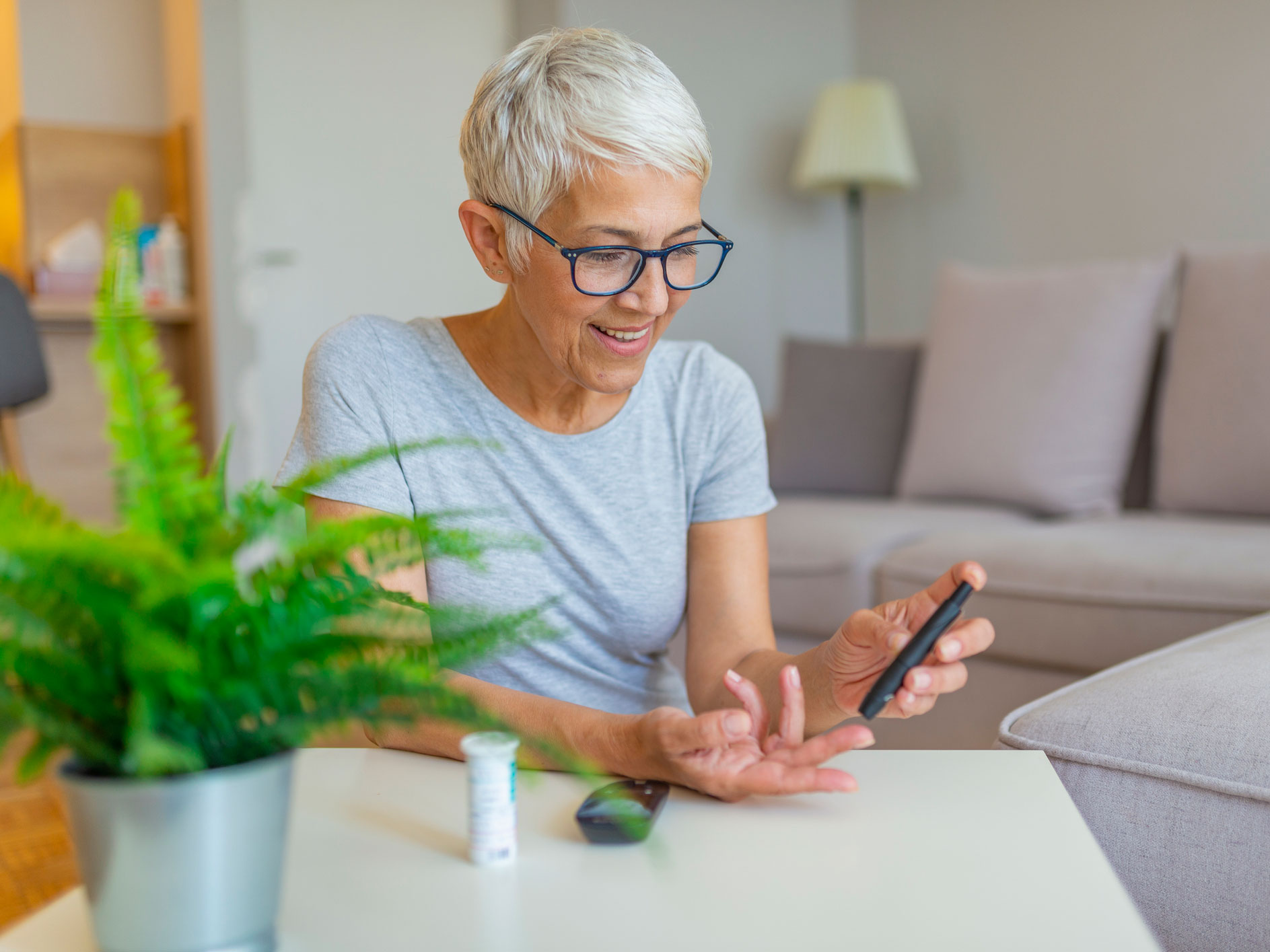Get Easy Health Digest™ in your inbox and don’t miss a thing when you subscribe today. Plus, get the free bonus report, Mother Nature’s Tips, Tricks and Remedies for Cholesterol, Blood Pressure & Blood Sugar as my way of saying welcome to the community!
COVID-19 and diabetes: What you need to know

All of us are taking extreme precautions now to protect ourselves from the COVID-19 virus, which is spreading. But if you have diabetes, your risk of getting very sick from the virus is higher than it is for someone without diabetes.
I don’t say this to scare you. You just need to know the facts, so you can take every precaution to safeguard your health at this time.
So, here’s what you need to know if you or a loved one or friend is diabetic. Use this information to protect yourself, and to help those you love to stay safe.
Why the lungs of people with diabetes are infected more easily
When the MERS coronavirus emerged in 2012, scientists at Johns Hopkins University showed that diabetic mice exposed to the virus could not muster a good, strong defense against it.
The diabetic mice had fewer cytokines, the proteins that interact with the immune system to regulate the body’s inflammatory response to disease and infection.
For this reason, the inflammation that was needed to fight the infection was delayed, allowing time for the virus to spread.
But the inflammatory response was also prolonged, so that it hung around too long, became chronic, and caused more health problems.
If you’re diabetic, you should be aware of the results of this study. They may very well correlate with the viral infections resulting from the COVID-19 coronavirus.

Truly Free Aloe Hand Soap
With the Truly Free Forever Bottle, simply get refills when you need them and stop throwing senseless plastic in the trash.
High blood sugar and poorly managed diabetes make you a target for infection
When diabetes is well managed, with blood sugar levels remaining under 200, a person with diabetes has no greater chance of infection than anyone else.
But when blood sugar is not under control, it’s a different story.
Dr. Steven Edelman is an endocrinologist specializing in diabetes and metabolism. He teaches at UC San Diego.
Dr. Edelman also has diabetes and is the founder of Taking Control of Your Diabetes (tcoyd.org)
He says that a higher chance of getting the virus, and poorer and more severe outcomes, are both risks for people with poorly controlled diabetes.
Related: The ‘other’ condition that can put you on the danger list for COVID-19 and flu
If your blood sugar is chronically elevated over 200, your immune system’s antibodies do not attack foreign bodies as readily. This is especially true of the present coronavirus.
Also, high blood sugar levels may trigger chronic inflammation, which can cause the body’s response to infection to be delayed or inadequate.
Increased risk of diabetic ketoacidosis (DKA)
A diabetic with any sort of viral infection is at higher risk of diabetic ketoacidosis, a serious condition that can lead to diabetic coma (passing out for a long time) or even death.
DKA occurs when your cells aren’t getting the glucose they need for energy. Your body begins to burn fat instead, which produces ketones.
Related: The ‘diabetes’ spice that beat metformin
When ketones build up in the blood, they make the blood more acidic. High ketone levels can poison the body.
Before it gets to that point, though, high ketone levels serve as a warning sign for a person with diabetes, either that they are getting sick, or that their diabetes is out of control.
Special precautions to take if you have diabetes
Clearly, if have diabetes, you need to be even more cautious than most of us about not getting exposed to the COVID-19 virus.
Here’s how you do it:
- Social distancing. Stay home! The further you are from others now, the better your chances of staying healthy. It’s just the way it is. Remember, though, distancing does not have to mean isolating. Connect with people you love online, or with a simple phone call. Read inspiring books. Listen to good music.
- Hand washing. Even if you’re staying home and not going out or letting others in, wash your hands several times a day.
- Clean your groceries. If there’s someone in your household at lower risk than you, let them go to the store for you. But always be sure to use disinfectant wipes or plain soap and water on all plastic containers, and on surfaces where your grocery bags landed.
What if I get sick?
Sickness, stress and poor appetite all make it harder to manage your diabetes.
Make arrangements to have someone check on you daily, even just by phone. It will lower your stress levels, and you can let someone know if you need food, medicine, or just an encouraging word.
Editor’s note: Are you feeling unusually tired? You may think this is normal aging, but the problem could be your master hormone. When it’s not working, your risk of age-related diseases skyrockets. To reset what many call “the trigger for all disease” and live better, longer, click here to discover The Insulin Factor: How to Repair Your Body’s Master Controller and Conquer Chronic Disease!
Sources:
- Coronavirus (COVID-19) — American Diabetes Association
- Why coronavirus is more dangerous for diabetics — CNBC
- Taking Control of Your Diabetes — tcoyd.org












